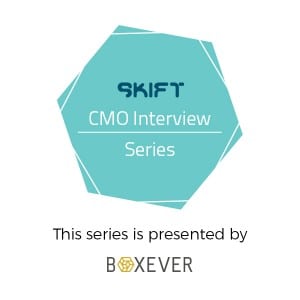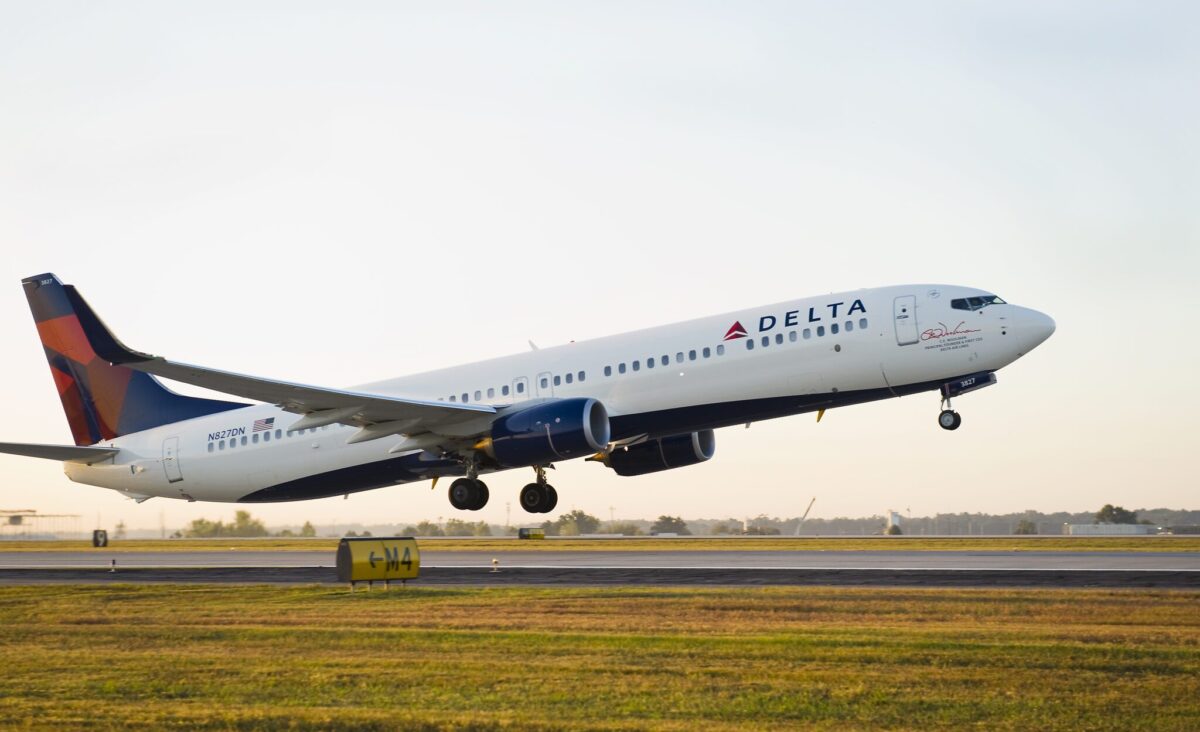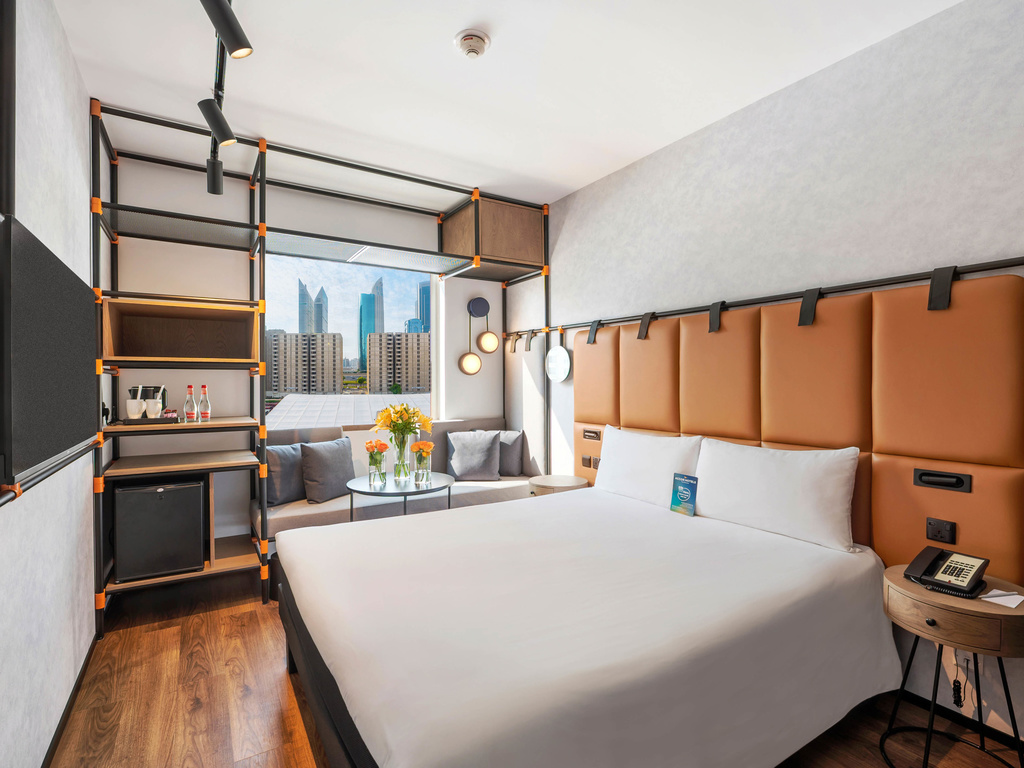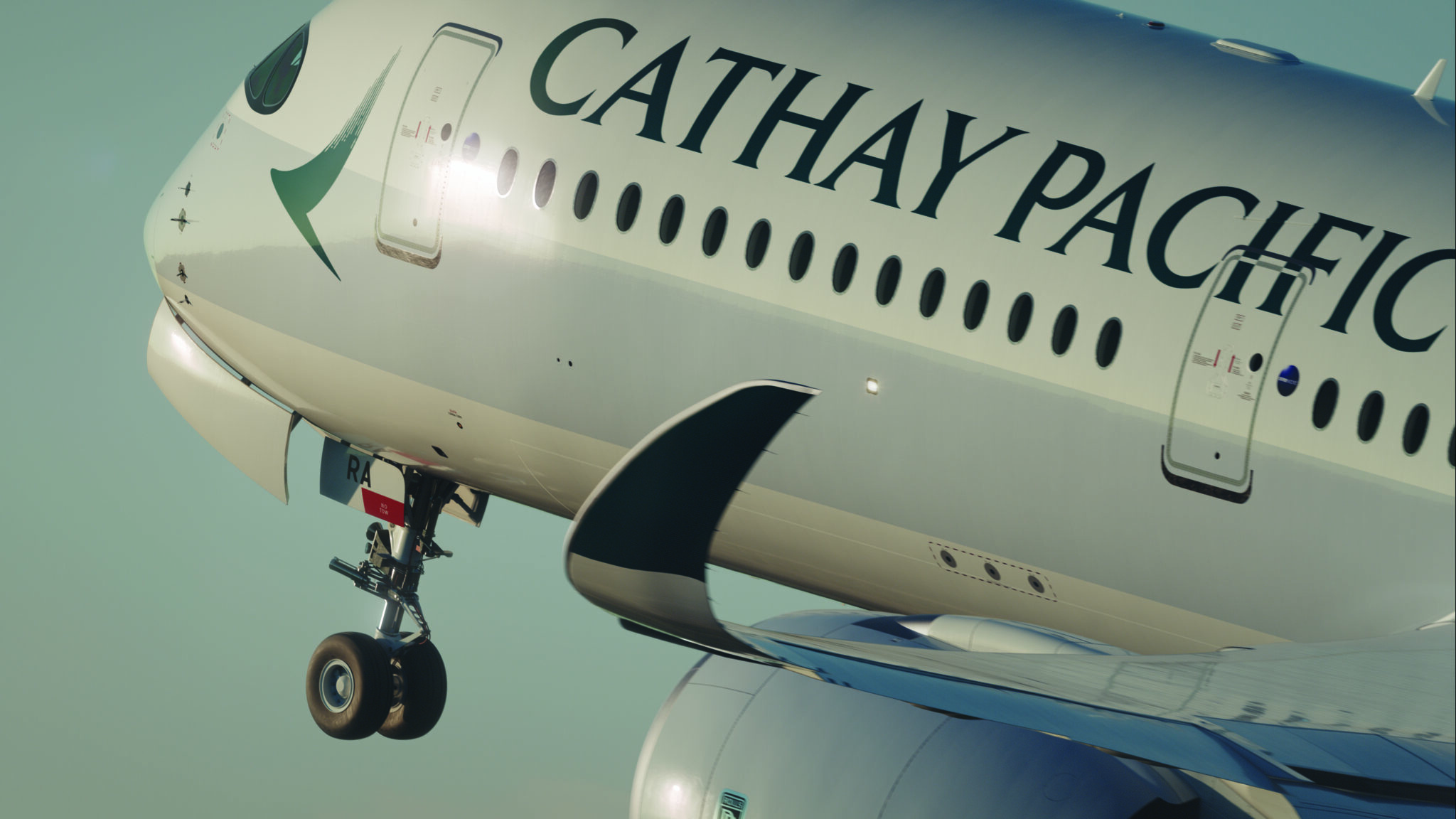Skift CMO Interviews: How Hilton is Convincing Travelers to Book Direct
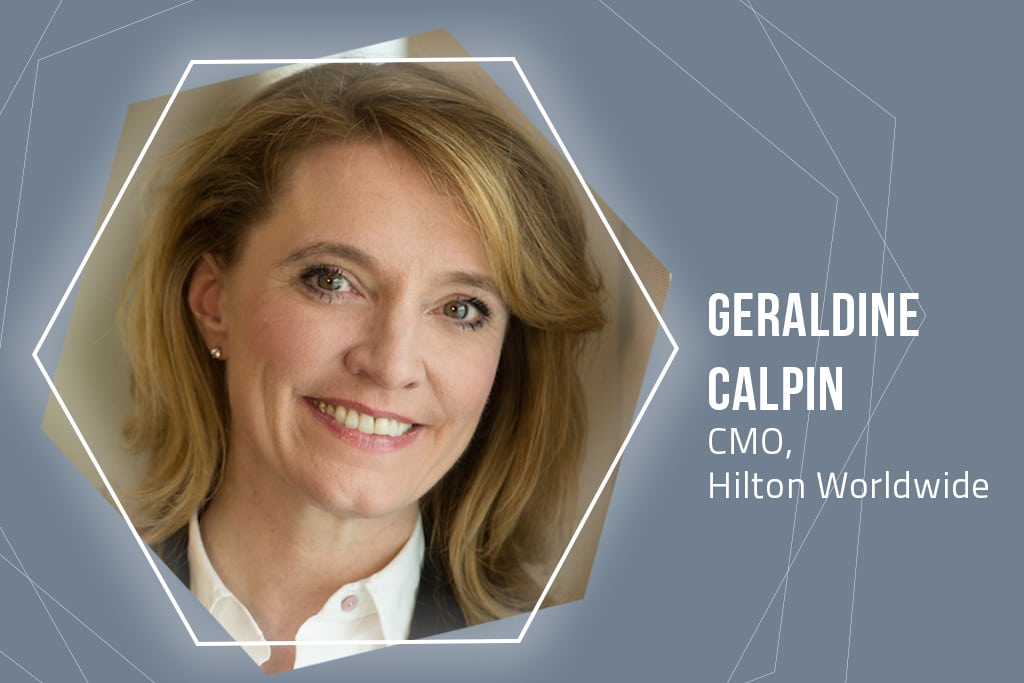
Skift Take
Editor's Note: Following our previous CEO interview series in online travel, hospitality, and destinations, Skift has launched a new series, this time focused on Chief Marketing Officers.
To better understand the big marketing challenges facing travel brands in an age when consumers are in control, Skift's What Keeps CMOs Up at Night will talk with the leading voices in global marketing from across all the industry's sectors.
These interviews with leaders of hotels, airlines, tourism boards, digital players, agents, tour operators and more will explore both shared and unique challenges they are facing, where they get insights, and how they best leverage digital insights to make smarter decisions.
This is the latest interview in the series.
According to Hilton Worldwide, 57 billion Hilton HHonors Points went unused in 2015 because guests booked through a third party, equating to more than 1.6 million free nights lost.
Geraldine Calpin, SVP and global head of marketing & digital at Hilton Worldwide, says the reason for that is because there’s such widespread belief among travel consumers that online travel agencies (OTAs) offer the lowest prices available in the digital marketplace.
Many other hotel brands have developed different types of marketing campaigns to educate consumers that booking directly on the brand.com websites provides the greatest value, with added benefits ranging from free Wi-Fi to free breakfast. Except, those promotions have often had minimal effect because consumer behavior is so entrenched in the OTA booking ecosystem.
So Hilton launched its largest global marketing campaign ever last month, called “Stop Clicking Around.” The initiative is designed to drive Hilton HHonors membership and change consumer perception by communicating as succinctly as possible that clicking around the web for the best hotel deal is a waste of time.
The central message emphasizes that Hilton is now offering a slight discount on room rates at all of its hotels globally, below those on the OTAs, for Hilton HHonors loyalty members.
The Rolling Stones’ iconic “Satisfaction” tune is the campaign theme song to help embed the campaign deeper in the consumer psyche. The Stop Clicking Around message is further supported with a clear listing of the automatic benefits for booking Hilton hotels at hilton.com.
That was the three-step strategy, especially designed to engage consumers on mobile: Tight tagline, famous song, simple list.
Leading up to the rollout however wasn’t so simple. Last year at this time, Hilton’s marketing and digital departments were closely aligned, but they were still separate and autonomous units. In September 2015, Hilton merged the two departments and put Calpin in charge, who previously ran the digital side.
The first order of business for Hilton’s newly configured internal marketing machine was Stop Clicking Around. We spoke with Calpin to see what makes this campaign different than others, and what trends she’s seeing in hospitality marketing in 2016.
Skift: What’s the elevator pitch for Stop Clicking Around?
Geraldine Calpin: First, we wanted to ensure that our customers knew that the best place to get the best rates was by booking direct. Number two, we wanted to announce that we had new benefits for being a member of our HHonors program, which are Wi-Fi, mobile check-in, digital room choice, mobile room key on occasion, and the always-on guaranteed discount. So if you're a member, you get a lot of benefits. The concept of the campaign is based on the fact that there's a lot of noise in the market, and people have a very short attention span across all advertising, so we had to make it a very simple, straight-forward, bold message.
We knew in order to get the message across in a big bold fashion, because we are Hilton and we want to be loud and proud, we needed to take a different approach. We needed a tagline that people wouldn't forget. We had to have music that you can't get out of your head. And we have research showing that we have a brand and guest benefits to offer that customers generally love. So that's what we were aiming for, and that's what I think we have achieved.
Skift: What were the challenges for creating this campaign on a global footprint?
Calpin: We did research around the globe before we really developed the concept, as you would expect. So we did research extensively in the U.S., UK, China, Russia, Japan, Germany, Korea, all over the world. Almost unbelievably and unanimously, when we put Stop Clicking Around in front of them in English or another language, everybody got it. It was cut-through messaging.
Skift: You seem to have the campaign messaging on all of the Hilton brands' home pages, except Waldorf Astoria, so it also scales easily across most of the portfolio.
Calpin: We wanted a campaign for all of our customers and our to-be customers. We wanted to make it simple for them and make it enjoyable for them through the music. And then we said, "Let's put it everywhere." Our media strategy is Prime Time, Prime Thought, so we had our spot at this year’s Grammys right after Taylor Swift. We have been across the CNN network, we were in Times Square, and so we've literally lit up the world with our campaign. Then we went live in the UK, and then everywhere.
Skift: After checking different Hilton hotels pricing around the world, the discount for HHonors members seems like it varies between 10 percent and less. How is that sliding discount scale configured?
Calpin: If you are trying to book a weekend three weeks out from now, you will get 10 percent off. If you're trying to book for tomorrow night, you will still get a discount but it will be 2-3 percent off.
Skift: Is that enough to convert customers who typically book hotels through OTAs?
Calpin: We tested that in many different markets, so what we wanted to do was make it valuable to our customers and valuable for our owners. And it's not just about price. It's about the rewards and the overall value beyond price, where they also will get free Wi-Fi and all of the other things I talked about before, like digital check-in and points and everything else. But even a dollar is dollar, so people do feel they can save money.
Skift: What keeps you up at night about this campaign?
Calpin: What I'm really passionate about, and therefore what keeps me up at night, is I want everybody who comes to work at Hilton, when they get out of bed in morning, wants to come to work. Those of us who look after the brand have to be proud to work for the brand. If you're a housekeeper in Singapore or Idaho, I am not your boos and I don't direct what you do, but how we position the brand, how we portray our brand in the marketplace, should make them feel proud to come to work. I feel I have a role in that, and things like Stop Clicking Around are helping to accomplish that goal.
Skift: What challenges do you see in digital marketing in hospitality looming ahead?
Calpin: We service our guests really well today, but with digital, I think about what are they going to want in the future? It's a little bit like we don't know what we don't know. So how do we revolutionize or digitize the travel experience, and not just the hotel experience? And how can I make my guests life easier, from when they're looking at a hotel and dreaming about where to stay, all the way through to when they're packing the night before and they need to know what to pack?
So what's the weather going to be like? And then once they arrive, where can they eat around the hotel? It's about really thinking through what is next. There's no road map about what is next. Certainly not in the digital space. So how do we revolutionize and change, and be in front of that which people probably don't even know they want yet?
Skift: How do you look at digital communications and technology in general in relation to the overall guest user experience?
Calpin: Great question. All of our designs of our websites and the hotel sites, and the entire user experience of our brands in general, is entirely customer driven. How we decide what we do next is based on what we think is going to make our customers lives easier. It’s all about: How can we make our customer's journey better using technology.
It’s the same with all of our digital technology. We have the one-click booking on the app, mobile check-in, and choose-your-room capability based on the floor plan. And in many hotels you can use your phone as your key and order room service from your phone. So it's really becoming where you have the heart of Hilton in your pocket.
Skift: What do you see as the biggest benefits of merging Hilton's marketing and digital departments?
Calpin: Basically it's one plus one equals three. Having brought the two together, the combined team has achieved more and both learned from each other. The go-to market strategy, if you look at the Stop Clicking Around, is you will see the campaign on our websites, and at the Grammys, and at LAX or JFK or Times Square, and you see exactly the same thing. The execution in different media will be exactly the same. So the benefit to our organization has been in that consistency, in bringing the cultures together and having a very much more vibrant feel where they're aligned rather than working alongside each other.
When we started, one of the things I did when I was appointed CMO was rally the team so whichever brand we were in, whichever channel we were in, marketing or digital, and whichever region of the world we were in, we aligned everything around one goal. That goal was simply called "Book Direct," and then the campaign resulted in being called Stop Clicking Around.
Skift: What were some of the challenges bringing everyone together?
Calpin: There are a lot of people all over the world in different time zones, but at the same time, we all needed to be around the same table. So the minute we decided that booking direct was our mission, I had all of the teams schedule a project call every single week. We walked through their programs, their issues specific to that region, and what their research teams were finding.
For the last 16 weeks before the launch, I attended all of those calls and that strategy brought together a big, bold, and very consistent campaign across the world in a very short time. It also resulted in a shared culture throughout the team. It bonded our digital and marketing, it bonded our brands teams, and it bonded us across the world, because we all have a single mission. We're all aiming for the same thing. So when everything went live, whether that was on the Grammys or at Prague Airport, the elation among everyone seeing that come together was for me as much about our team as it was for the customers.
Skift: Does everyone on the executive team now view Hilton as a digital-first company?
Calpin: We were a digital-first company going back to early 2014 when we decided we were going to be a digital-first company. But I think you could say that we really aligned around that in 2015. That's when everything came together.
This series is presented by Boxever. The Skift content team maintains complete editorial control over these interviews and the selection of subjects.
For more insights from Boxever, please see the following reports:
- Free Skift Report: The Psychology of Customer Experience
- Free Skift Report: The Habits of Travel Bookers: How Americans Take Vacation
- Free Skift Report: What Travel Brands Can Learn from Behavioral Economics
